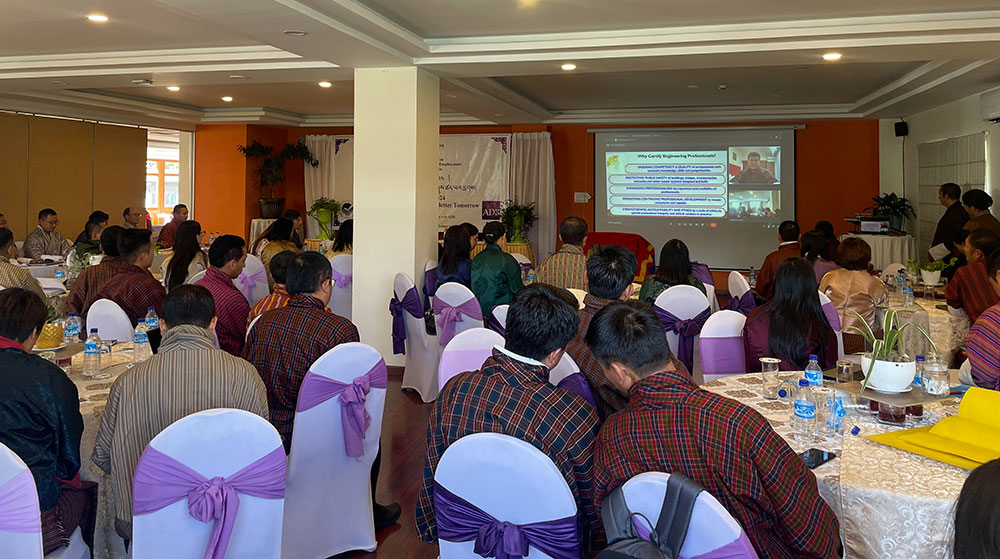Sherab Lhamo
The tendering system in the country, which often gets blamed for sub-par quality of work, is yet to undergo major reform.
The old tendering practice has remained unchanged for decades now, with procuring agencies prioritising the lowest quoted price over the lowest evaluated bid. This approach often compromises quality of materials and services procured.
However, the Procurement Rules and Regulations 2023 clearly spells out that bids should be assessed based on the best value for money, evaluated against various objective criteria outlined in the bidding documents, rather than simply selecting the lowest quoted price.
The director of Bhutan Standards Bureau (BSB) under the Ministry of Industry, Commerce and Employment(MoICE), Lobzang Dorji, said that quality infrastructure plays a critical role in ensuring that the products and services meet national and international standards. “By investing in quality infrastructure, we can ensure that Bhutanese products and services are recognised and valued in both domestic and international markets.”
This issue was highlighted during a day-long quality conclave on the theme ‘Advancing Quality Culture for a Better Tomorrow’, organised by the BSB in collaboration with the Asian Development Bank on September 30.
The MoICE secretary, Tashi Wangmo, highlighted the importance of business integrity, quality, and collaboration for fostering a sustainable business environment.
She cited examples of price undercutting in the construction sector, which compromises the quality. “Using cheap, low-quality materials may seem cost-effective initially, but it leads to higher expenses for the government in the long run,” she said, calling for open dialogue and cooperation to address these challenges.
The chief engineer of BSB, Jigme Wangchuk said that the BSB is a service provider that ensures the products meet the requirements of the standards. “It is ultimately the responsibility of the procuring agency to ensure that the product is certified in a manner before they procure.”
Established under the Standard Act of 2010, the BSB is tasked with formulating national standards, certifying products and services, and functioning as the national metrology laboratory.
BSB Director Lobzang Dorji said that to bridge the existing gap in quality infrastructure, it is crucial to strengthen regulatory frameworks, enhance testing and certification capacities, and align quality assessment systems with international best practices. “Advancing a quality culture in Bhutan requires collaboration among all stakeholders, including government agencies, the private sector, and civil society,” he said.
During the day-long workshop, participants identified several challenges to maintaining quality in Bhutan, including limited public understanding, inadequate in-house testing capabilities, and inconsistencies in procurement processes.
The proposed solutions included increasing public awareness of quality standards, establishing in-house testing facilities, strengthening regulations, and promoting ethical practices among stakeholders. Recommendations also included resource sharing and capacity-building to overcome constraints in human resources, expertise, and financial infrastructure.
Participants also raised issues on overlapping mandates among different government organisations, such as the calibration of medical tools done by both the Ministry of Health and BSB.
Jigme Wangchuk emphasised the need to address these duplications to optimise resource use. “If one agency can fulfil a role effectively, we should streamline efforts to avoid wasting resources,” he said.
Currently, BSB has certified 65 local products and 152 Indian products, including construction materials, plumbing supplies, electrical accessories, and various Cottage and Small Industry (CSI) products.
Around 74 participants attended the workshop.


